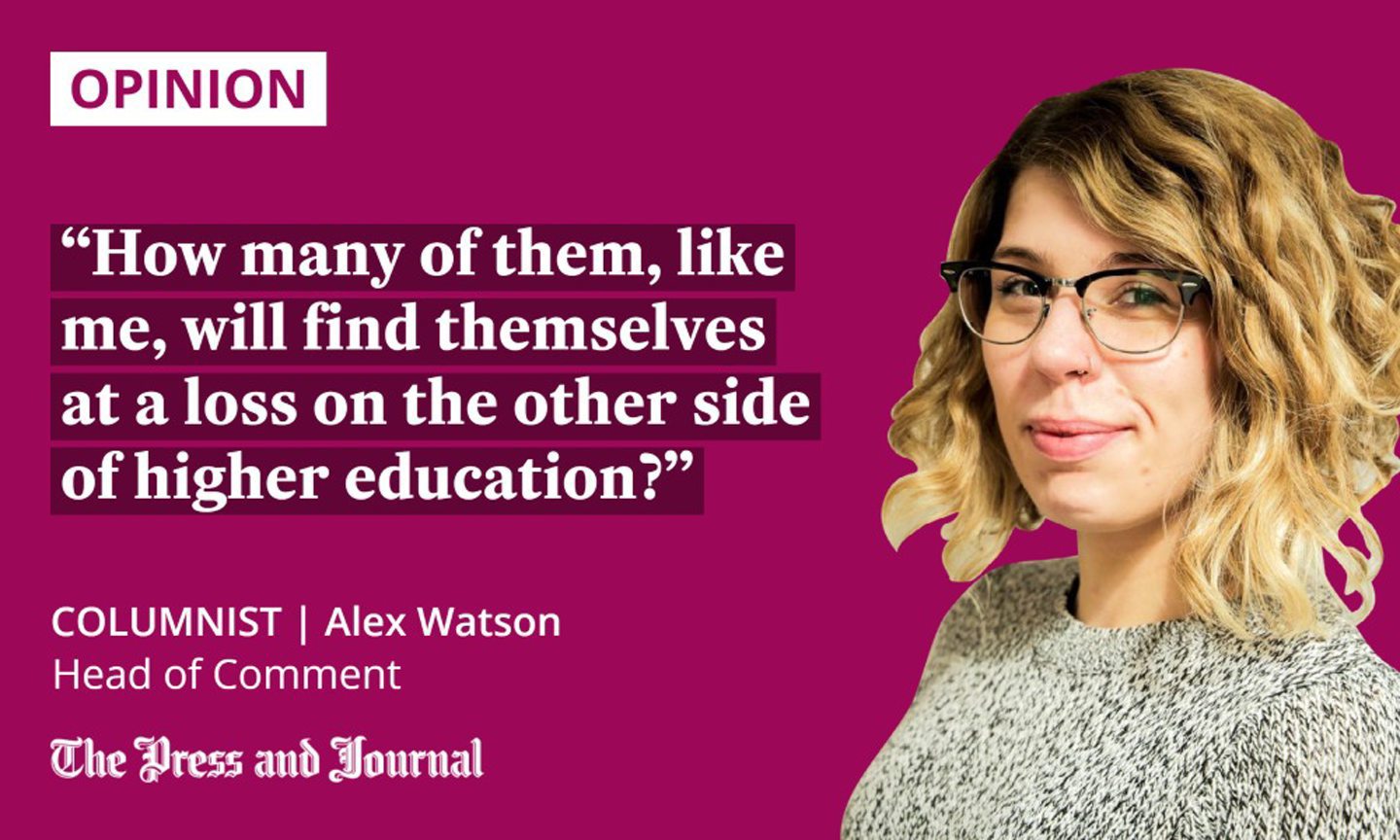A wise woman who also happens to be my mother once told me that we’d got it the wrong way round; that people shouldn’t go to university straight out of school, but when they were fully grown, more sure of what they wanted to learn, ready to focus.
But university straight out of school became the default for middle class people in this country a long time ago. I don’t remember even considering the alternatives; I’m sure very few, if any, of my classmates did either. It’s what our parents – my mum, that same wise woman! – wanted for us. And free tuition if we stayed in Scotland? That’s a no-brainer.
I was a bit of a no-brainer myself back then. I applied to study English literature at as many Scottish universities as I was allowed to. I ended up with my pick of a few, studied, graduated, got that all-important degree.
Cool. Then what, genius?
I realised, close to the finish line, that a degree in English literature and film studies on its own wasn’t going to land me my dream career. For a start, I had no idea what my dream career was.

As graduation and unemployment loomed, I scrambled for ideas, firing my underwhelming CV out at random, for roles I was wildly underqualified to do.
What other options did I have? Another degree? Go into academia? Get a stopgap job and accidentally stay there until it felt like my soul was on its last legs? You guessed it – I chose what was behind door number three.
If I sound bitter or whiny or spoiled, it’s not my intention. I know I’ve been handed countless wonderful opportunities in life, purely because of how and where I was brought up; I’m truly grateful.
And, of course, it all worked out in the end. I dipped a toe into the world of journalism and was eventually able to leave that stopgap job, pulling my battered soul free just in the nick of time, like Indiana Jones grabbing his hat.
Now, though it has its flaws and its troubles, I fall in love with this industry a little more every day. The people, the work, the rich history: it’s something special.
The journey here may have been haphazard, but I was lucky enough to land on my feet.
I could travel back in time and reassure that stressed-out new graduate that everything would be fine, couldn’t I? But I’d rather rewind further – sit down in the high school library with my 17-year-old self and ask: “Alex, what’s the longterm goal here?”
At school, though I got by all right, the only skill that ever made me stand out from the pack was writing. I was praised profusely for a short story in primary four – which was actually a rip-off of a Jacqueline Wilson book. (Sorry, Jackie – love your work!) “Alex is a wonderful writer, but it would help if she could throw in a few facts now and again,” my Standard Grade history teacher once allegedly divulged at parents’ evening.
OK, so I was no prodigy. But there was something there: a flicker of talent that almost every teacher I ever had picked up on and encouraged.
What next, after uni?
A record 183,025 people studied at Scottish universities in 2021-22. That’s more Scottish students than ever attending Scottish universities, the Scottish Government says. But how many of them, like me, will find themselves at a loss on the other side of higher education?
Don’t get me wrong – having a degree is a good thing. Having a degree and a plan for what comes next is better.
When I was a teenager, whether due to parent-approved peer pressure or internalised snobbery, it felt like university was the only way
A cynical part of me worries that it makes schools look good if lots of their pupils go on to university, so they encourage young people to tick a box, any box. And that makes universities and governments look quite good too, I suppose.
When I was a teenager, whether due to parent-approved peer pressure or internalised snobbery, it felt like university was the only way – but there are lots of other options.
My guidance teacher coached me through my UCAS personal statement so I could read other people’s words and analyse them for four years. I wish, instead, she had brought up the vocational courses and apprenticeships that would have allowed me to write my own words and get paid for them, perhaps right out of the gate.
We need to open doors into our industries
Even if lectures and tutorials are free, going to uni is expensive. Some people living in Scotland will count themselves out immediately, for that reason alone. Others won’t apply because they aren’t encouraged to, or because they leave school after fourth or fifth year to get a job.
But lots of these individuals will already have skills and perspectives that we could really use – that we desperately need – in our industries; in journalism, engineering, IT, healthcare and many more. And, if a door is opened at the right time, if work experience or an internship or apprenticeship is offered, and those skills are developed into a fulfilling career, it’s a win-win.
As is often the case, my wise mother was right: people shouldn’t go to university straight out of school – not purely for the sake of it, anyway. They should be given all the options and, I hope, come up with a better plan than I did.
Alex Watson is Head of Comment for The Press & Journal and didn’t even get to wear a mortarboard on graduation day

